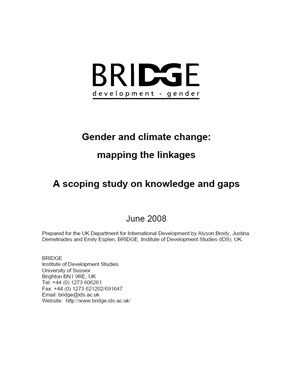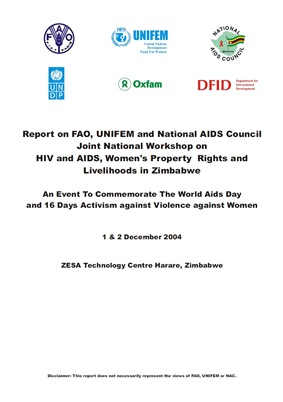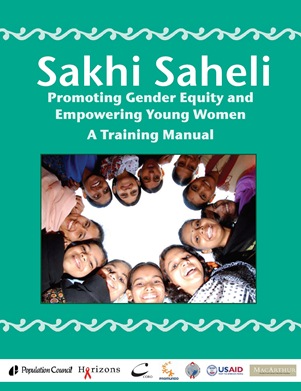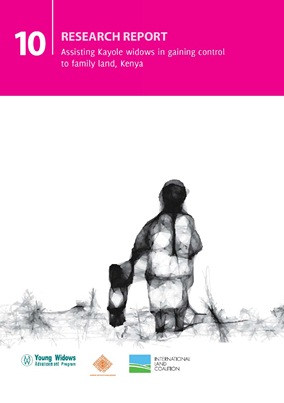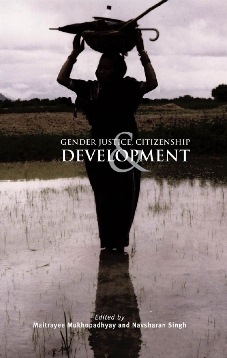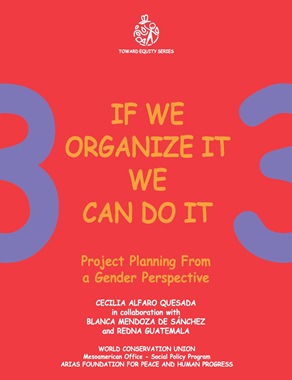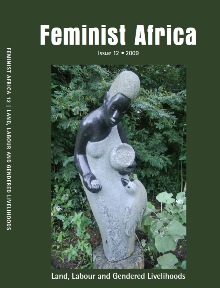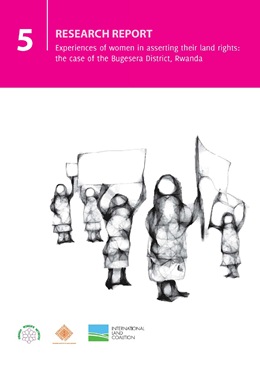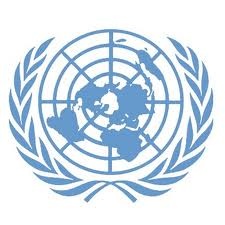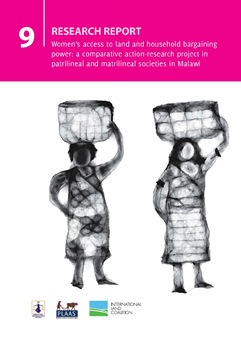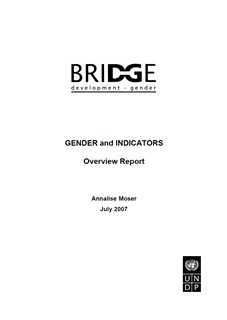Report on FAO, UNIFEM and National AIDS Council Joint National Workshop on HIV and AIDS, Women's Property Rights and Livelihoods in Zimbabwe
This is the report of a workshop held in Zimbabwe on HIV/AIDS and property rights women, with the aim of empowering widows at the grassroots level, as well as orphans affected by insecure property rights. The report makes recommendations on how to increase tenure security for women and children affected by HIV/AIDS.
You can download this report from the FAO website.
Sakhi Saheli: Promoting Gender Equity and Empowering Young Women
This guide specifically seeks to promote women's reproductive rights in India but presents methods and specific participatory tools that can be adapted to other issues and contexts, like women's land rights.
[From the FAO website] This training initiative provides a space to young women and girls to question and challange existing inequitable gender norms; promote positive constructs of gender and identity; improve their understanding about their body; their feelings and sexuality; and promote sexual and reproductive health.
Assisting Kayole widows in gaining control to family land, Kenya
Access to and control over land is crucial for family well-being and food security in Kenya. Most land in Kenya is acquired through inheritance of family ancestral land, which is mostly passed down the male line.
Gender Justice, Citizenship and Development
This book explores the meanings of gender justice and the practice of citizenship as shaped by context-specific histories, cultures and struggles. It presents a conceptual framework and provides four regional perspectives and a guideline for development programs. The section on Sub-Saharan Africa in particular focuses on the the definition of citizenship in the female experience as more than simply a formal relationship between the individual and the State, but also involving her position in a family, a community and an ethnic group.
Module 3: If We Organize it We Can do it: Project Planning from a Gender Perspective
Taking the step from appraisal to action using planning techniques that respond to the needs expressed by women and men.
This is a module for project planning from a gender perspective. It outlines experiences learned by various projects in Central America and provides practical guidleines for how to manage gender equity in the plannig process of a project.
You can download this module from the International Union for Conservation of Nature's website (IUCN).
Community Mapping: A How-To Handbook for Grassroots Women's Organisations
This handbook is based on the experiences of the Huairou Commission the Women's Land Link Africa in using community mapping with groups of women. Community mapping allows grassroots women to assess and record the community's needs and assets and to imagine new solutions to the issues they are facing. The handbook provides through and practical guidelines for various community mapping methods.
You can find this publication on the website of the Huairou Commission.
Land, Labour and Gendered Livelihoods - Feminist Africa - Issue 12, 2009
[From the editorial] This issue of Feminist Africa seeks to explore the interconnections among economic liberalisation policies, land and resource tenures, and labour relations in the structuring of gendered livelihoods in sub-Saharan Africa. The focus on livelihoods departs somewhat from Feminist Africa’s niche in providing cutting-edge feminist analysis of issues of sexual politics and identities, national politics and democratisation processes, higher education and feminist research methodologies.
Experiences of women in asserting their land rights: the case of the Bugesera District, Rwanda
Poor women in developing countries rely on land as source of livelihood. Increasing pressure on land — brought on by globalisation pressures, increased population and privatisation — undermines women’s land tenure security. The comparison of women’s land access is predominantly measured against that of men, and this has been the basis for formulating policy aimed at increasing women’s land tenure security.
Optional Protocol to the Convention on the Elimination of Discrimination against Women (CEDAW)
The Optional Protocol entered into force in 2000.
Women’s access to land and household bargaining power: a comparative action-research project in patrilineal and matrilineal societies in Malawi
WOLREC undertook this action research in order to enhance women’s bargaining power through improved access and control over land in the patrilineal and matrilineal communities in Southern and Northern Malawi. For WOLREC, as an action-orientated NGO, the exact nature of the relationship between women’s bargaining power in the household and their access to, and control over land is key to deciding which interventions improve poor rural women’s access to economic justice.
Gender and Indicators Cutting Edge Pack - Overview Report
[From the BRIDGE website] This Overview Report explains what is meant by gender-sensitive indicators and measurements of change; makes the case for gender-sensitive measurements; and outlines how to go about measuring in practice. It includes sections that focus on measuring the impact of gender mainstreaming and on assessing specific areas of gender inequality - such as gender-based violence or the gender dimensions of poverty. A range of international measurement instruments are discussed, including widely recognised goals and indices, as well as innovative new approaches.

